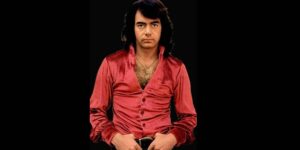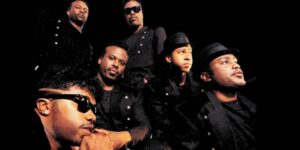When we think of music, there are a few genres that come to mind – rock, pop, country, and the list goes on. However, in recent years, two genres that have dominated the music scene are hip-hop and R&B. These genres have come a long way, evolving from their roots to what we know and love today.
A Brief History
Hip-hop, short for hip-hop music, has its roots in the 1970s in New York City. It was born from DJing, MCing, and breaking. DJs would spin records and mix beats, while MCs would recite rhymes over the beats. As the genre grew, so did the demand for more complex beats and rhymes. This led to the birth of hip-hop as we know it today – a fusion of spoken word, music, and dance.
R&B, or Rhythm and Blues, has its roots in the 1940s. It originated from the fusion of gospel, blues, and jazz. Over the years, R&B evolved to incorporate other styles, such as rock, pop, and funk. The genre continued to evolve, with the introduction of new sounds and styles, such as funk and soul.
The Evolution of Sound and Style
In the 1980s and 1990s, hip-hop and R&B started to merge, creating a new sound and style. Artists like DJ Jazzy Jeff and the Fresh Prince, LL Cool J, and Mariah Carey were among the pioneers of this new sound. The genre continued to evolve, with the introduction of new artists, producers, and styles.
Today, hip-hop and R&B have become a staple in the music industry. With the rise of social media, streaming services, and the internet, these genres have spread globally, reaching a wider audience. Artists like Kendrick Lamar, Cardi B, and The Weeknd have taken the world by storm, breaking records and pushing the boundaries of the genre.
Influences and Impact
Hip-hop and R&B have had a significant impact on society, particularly on youth culture. These genres have been used as a form of expression, telling stories of struggle, triumph, and life experiences. They have also been used as a means of social commentary, addressing issues such as racism, sexism, and police brutality.
Artists have used their platforms to speak out on these issues, using their music as a way to spread awareness and inspire change. The influence of hip-hop and R&B has also extended beyond music, with many artists branching out into acting, fashion, and social activism.
The Future of Hip-Hop and R&B
As hip-hop and R&B continue to evolve, it’s clear that the future is bright. With new artists emerging and new sounds and styles being created, these genres will continue to thrive. The rise of social media and streaming services has made it easier for artists to share their music and connect with fans worldwide.
However, it’s also important to acknowledge the challenges these genres face. With the ever-changing music landscape, it’s getting harder for artists to stand out and be heard. The pressure to create hit singles and albums can also be overwhelming, leading to burnout and artist fatigue.
Conclusion
In conclusion, hip-hop and R&B have come a long way, evolving from their roots to what we know and love today. These genres have had a significant impact on society, serving as a form of expression and social commentary. As the music industry continues to evolve, it’s clear that hip-hop and R&B will remain a staple, pushing the boundaries of sound and style.
FAQs
Q: What is the difference between hip-hop and R&B?
A: Hip-hop refers to a genre of music that originated in the 1970s, characterized by MCing, DJing, and breaking. R&B, or Rhythm and Blues, originated in the 1940s and refers to a genre of music that incorporates elements of blues, gospel, and jazz.
Q: Who are some popular hip-hop and R&B artists?
A: Some popular hip-hop artists include Kendrick Lamar, Cardi B, The Weeknd, and J. Cole. Some popular R&B artists include Beyoncé, Ariana Grande, Chris Brown, and Usher.
Q: How has hip-hop and R&B evolved over the years?
A: Hip-hop and R&B have evolved significantly over the years, incorporating new sounds, styles, and artists. From the early days of hip-hop to the rise of trap and mumble rap, and from the soulful sounds of R&B to the more experimental and electronic sounds of today, these genres have continued to evolve and push boundaries.
Q: What is the impact of hip-hop and R&B on society?
A: Hip-hop and R&B have had a significant impact on society, particularly on youth culture. These genres have been used as a form of expression, telling stories of struggle, triumph, and life experiences. They have also been used as a means of social commentary, addressing issues such as racism, sexism, and police brutality.
Q: What is the future of hip-hop and R&B?
A: The future of hip-hop and R&B is bright, with new artists emerging and new sounds and styles being created. With the rise of social media and streaming services, it’s easier for artists to share their music and connect with fans worldwide. However, the challenges these genres face, such as the ever-changing music landscape and the pressure to create hit singles and albums, will continue to shape the future of hip-hop and R&B.






